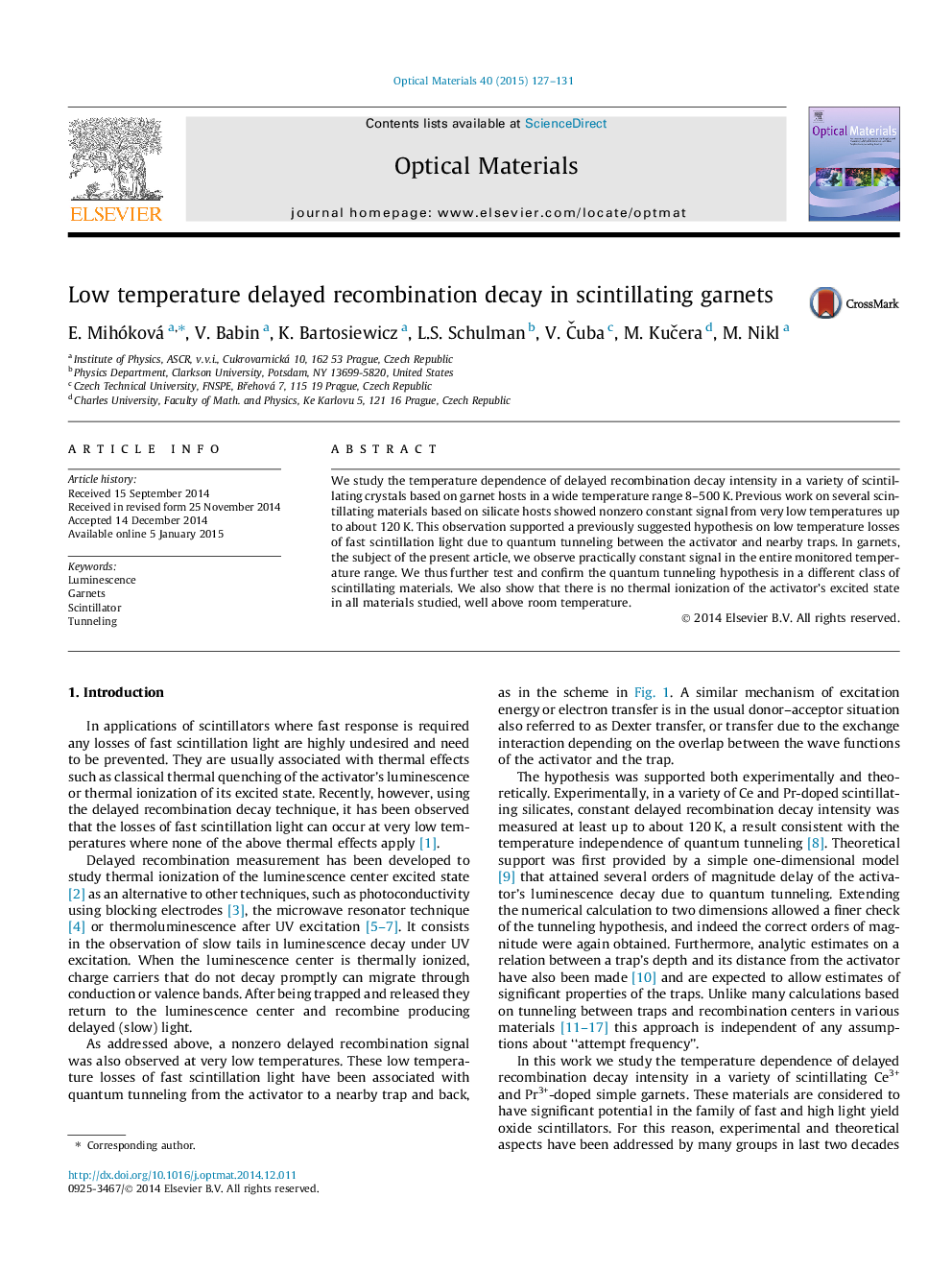| Article ID | Journal | Published Year | Pages | File Type |
|---|---|---|---|---|
| 1493880 | Optical Materials | 2015 | 5 Pages |
•Delayed recombination decay in scintillating garnet materials is studied within 8–500 K.•Quantum tunneling between the recombination center and nearby traps is confirmed.•No thermal ionization of the activator’s excited state well above room temperature.•Observed behavior in multicomponent garnet associated with the continuous trap distribution.
We study the temperature dependence of delayed recombination decay intensity in a variety of scintillating crystals based on garnet hosts in a wide temperature range 8–500 K. Previous work on several scintillating materials based on silicate hosts showed nonzero constant signal from very low temperatures up to about 120 K. This observation supported a previously suggested hypothesis on low temperature losses of fast scintillation light due to quantum tunneling between the activator and nearby traps. In garnets, the subject of the present article, we observe practically constant signal in the entire monitored temperature range. We thus further test and confirm the quantum tunneling hypothesis in a different class of scintillating materials. We also show that there is no thermal ionization of the activator’s excited state in all materials studied, well above room temperature.
